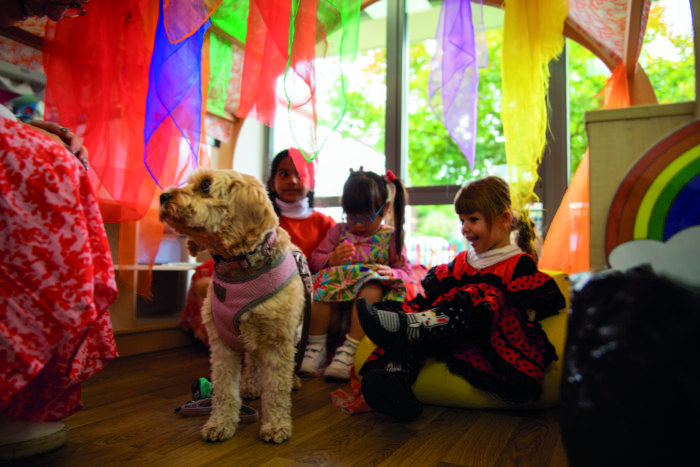
State ‘til Eight – a hurdle to be feared, or a strategic move?
State ‘til Eight – a hurdle to be feared, or a strategic move?
Mel Ingle, Founder of Ingle Education, looks at the issues surrounding one of the key age groups transitioning from state to private.
When it comes to choosing Primary education for the Nation’s 4-11 year olds, we Brits love a rhyming phrase, and no more so than the long-established ‘State ‘til Eight’. So what does this actually entail, and how do parents who make that choice navigate the transition from State to Independent for Year 3 or 4.
What is State ‘til Eight
The old adage of using the ‘local state primary’ until the end of KS1, then transferring into the Independent System is a well-trodden path, especially in the enclaves of SW London where pockets of aspirational middle-class parents have indirectly created ‘Prep/Primary hybrids’ with extensive extra-curricular tuition replacing school fees. But what does it mean?
Well firstly, in most parts of London, it’s actually State ‘til Seven, departing Primary School at end of Year 2 to join a Prep in Year 3, and the choice is, admittedly, large. SW London Prep Schools often add extra classes or increase class sizes in Year 3 to accommodate an influx from the State Sector and Pre Preps, and the ‘revolving door’ effect of some children leaving those Preps to move to boarding schools or ‘all through’ institutions means spaces are there for the taking.
Schools on the periphery of SW London in Sutton, Kingston & Surrey’s Elmbridge often offer their minibus services to children from Year 3 onwards, opening up a raft of additional, often more spacious prep options to London parents.
Finally, the beginnings of the true ‘preparatory’ phase of prep schools, ramping up the academic preparation for 11+ or 13+ with specialist subject teaching and streaming, and extending sports teaching to upwards of 4-5 hours per week, can often lure the ambitious parent out of even the more desirable Primary Schools.
Those choosing to remain in the State Sector but aspiring to Selective (Grammar or Independent) entry at age 11 will usually turn to private tutors to get their children exam ready. This, along with team sports being coached on weekends/after school sees many financially fortunate parents make the move into the Independent Sector to outsource the Prep and the Sport to school.
So State ‘til Eight’, whilst far from essential, even for those targeting selective 11+ entry is still often seen by parents as the optimum ‘mix and match’ of State and Independent Primary Schooling.
How do parents prepare their children for a transfer to Independent Schooling at age 7?
Firstly, it is important to recognise that not all 7+ processes are created equal. Admission to all through institutions such as Kings College Wimbledon, Putney High, Lady Eleanor Holles and St Pauls Junior School are assessments designed to identify potential straight A ‘A Level students’ from amongst their 6 and 7-year-old applicants. Such schools inevitably set the bar extremely high to academically filter those to whom they make offers, and as such, children applying from the State Sector often require several months, if not a year of tuition to equip them with the skills and techniques required for assessment.
Conversely, those looking to move from the State Sector into a Prep school, at which their children will stay until age 11 or 13 and then sit exams to move to a range of different Senior Schools will not experience anywhere near the same level of academic pressure on their assessment day, and will often not require any additional tuition at all.
These prep schools are obliged merely to ‘prep’ their students for an academically wide-ranging selection of leavers destinations, and not for one singular ultra-high achieving destination, thus their selection process is more about matching the child to the cohort they will be joining than it is about ‘weeding out the best’.
Is 7+ the only time to move to the Independent Sector during Primary School?
Absolutely not. Whilst 7+ receives the most attention, mainly due to the volume of places opening up at this phase, many schools have formal 8+, 9+ and the increasingly popular 10+ admissions options too.
Additionally, many schools will gladly accept applicants for ‘occasional places’ at any point during the primary years, should a place become available. Whilst numbers of places at 8+ and 9+ remain quite low, 10+ (sitting exams in Year 5 to either join a Senior school in Year 6, or bank a place 12 months early for Year 7) offers a raft of options. Generally targeted towards bright children in the State Sector who have ‘outgrown’ their Primary School, 10+ is often seen as the ultimate ‘back door’ route to Independent Secondary Education without quite the same degree of pressure as 11+.
Schools such as Whitgift, Emanuel, Trinity and Kingston Grammar School all offer a multitude of places for 10+ admission, with an option to ‘try again’ if unsuccessful in Year 5. Parents who are looking to make the move into the Independent Sector at some point in their child’s primary years should therefore not feel pressurised to do so only via the ‘State til Eight’ path if this doesn’t suit their child or their family.
With post-pandemic financial instability sure to have an effect on Independent School numbers, and a steady exodus out of London by newly emancipated home-workers, the whole schooling landscape is shifting. Helped by the opening of several new Senior Schools, more places are available in the Independent Sector in London schools than seen in previous years, and this can only bode well for savvy parents who want to strategically ‘mix and match’ the systems.
Mel Ingle is Founder of Ingle Education, a Consultancy and Advisory Service for parents looking for an unbiased, honest assessment of all potential educational paths for their children.
Offering guidance on the UK Education System as a whole, Admissions processes and criteria for both State and Independent Schools at all age groups and a bespoke School Search service, Ingle Education is unique in both its breadth and tailored approach.










